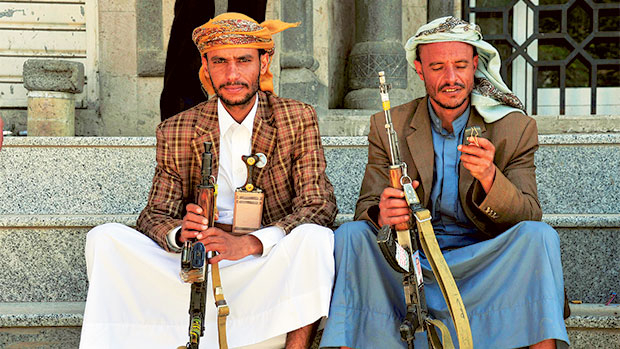
Sana’a: Yemen’s Shiite rebels captured a town south of the capital Sana’a early on Sunday, when they also blew up the house of a rival Islamist politician, security officials said.
In Sana’a, the rebels, known as the Al Houthis, stormed the headquarters of the capital’s local government, chasing out the governor, Abdul Ghani Jameel, who they accuse of corruption, according to the officials.
The Yemeni officials spoke on condition of anonymity because they were not authorized to speak to the media.
Sunday’s developments reflected the growing strength of the Al Houthis, who overran Sana’a last month and captured a key Red Sea port city last week along with a province south of the capital.
Early on Sunday, the Al Houthis captured the town of Yarim about 170 kilometers (106 miles) south of Sana’a in the province of Ibb. Yarim has a population of more than 100,000 and lies along the main road to Yemen’s southern provinces.
The Al Houthis, widely suspected to have links with Iran, took over the house of a prominent Islamist politician in Yarim on Saturday, setting off clashes that left 12 people dead. The politician, who comes from the powerful Islah (Reform) Party, was not home at the time. On Sunday, according to the officials, they blew up the house.
The Al Houthis are at sharp odds with the Islah party and powerful Sunni tribes allied with it. The rebels say they are demanding a bigger share of power and a change to the country’s political order following the 2011 protests that forced longtime leader Ali Abdullah Saleh out of office. But their military advances suggest they are seeking to take full control of Yemen’s northern provinces at a time when secessionist sentiments are growing in the once-independent south of Yemen.
On Sunday, thousands in the Al Houthi-controlled port of Hodeida demonstrated to press demands for the rebels to leave the city. Similar protests had taken place in Sana’a in recent weeks.
Yemen has been beset for years by an Al Qaida-led insurgency that has staged dozens of suicide attacks against military and security personnel. It also has endured crushing poverty that has bred resentment - and outright rebellion - that took root in a secessionist movement in its southern region.












